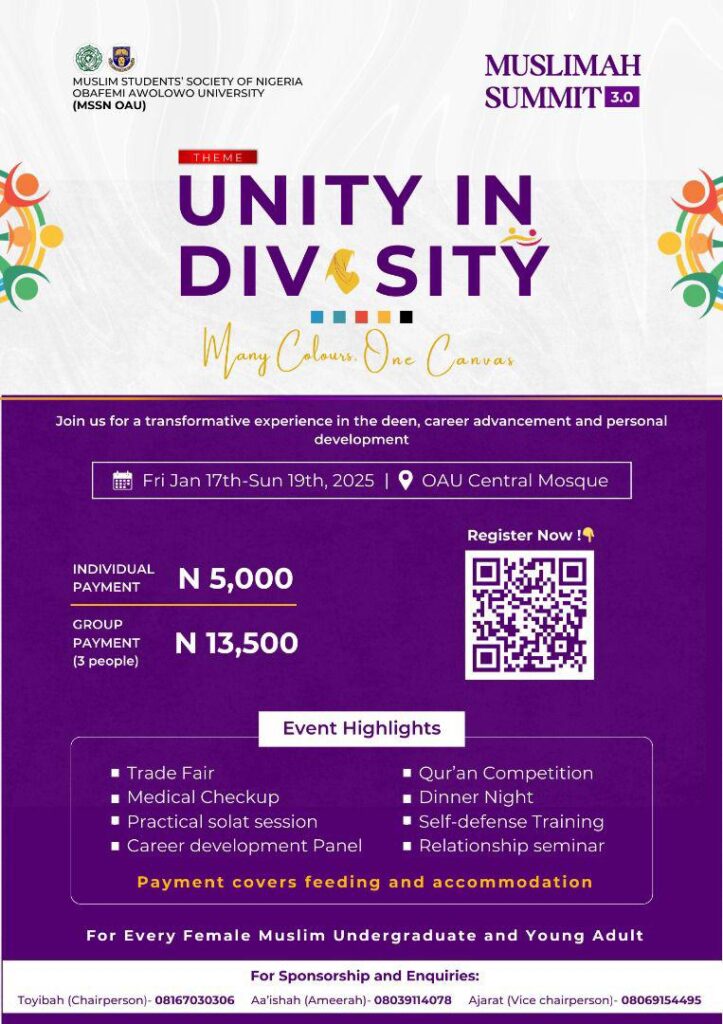Everyone follows a path, but for a student, it’s often a triangular one, quite indisputably. From home to campus, from campus to classrooms, and back home again, in that sequence. But is it really always like that?
Everyone knows the triangle is just a template, designed to be molded as circumstances demand. Sometimes, you might find yourself navigating other angular templates—a hexagon, a nonagon, or even something more abstract. That’s a student’s life, especially a student of this Ọgbà.
A few days ago, I was in a hurry to fulfill an obligation—an errand—and the day was already drawing its curtains of clarity. I had to hop on a bike, paying the price dictated by the bikeman, as my residence is quite distant from school. Desperate to get this errand off my neck, I hurried to the gate.
For anyone unfamiliar with the bustling chaos of Obafemi Awolowo University’s gate, it’s easy to feel lost, even clumsy. Yes, that’s the feeling when you’re at the gate. But not on this day. Today, everything felt subdued. Movement was slow, feet took their strolls lazily, and the entire atmosphere was in “sapa” mode. Still, I flagged down a bike, negotiated the price, and climbed on.
But this was more than just a ride. It was a memory in the making, a life experience—a story, not a fable.
As we rode, the bikeman started making comments about the campus and Nigeria in general. I, predictably, wore a frown and a nonchalant expression. But something in his words caught my attention.
“You could imagine how this school was in the 1970s,” he began. “Everything was in order. Everyone was sane. And by ‘sane,’ I mean naturally so. There was a time when bicycles didn’t stray into lanes built for cars and other vehicles.”
He continued talking about the campus structures and layout, comparing them to what exists now. His tone turned nostalgic.
“Do you know,” he said, “that the Archi Studio—that’s the current block dedicated to Architecture—was once a cafeteria?”
At this point, I couldn’t help but let my mind wander back in time while simultaneously scanning the campus topography.
“Yes,” he went on, “it was a cafeteria in the 70s. Whenever I came to visit my brothers, we would go there to order food—real food—with a medley of different assortments. At night, Awo Hall and Fajuyi Hall were like gardens in the Northern Hemisphere, glowing and serene.”
I found myself listening intently, unable to imagine that such a vibrant life had once existed here, spent and gone, never to return.
My thoughts were interrupted as he continued, “…and now, people aren’t ready to keep things in order.”
“What did you say?” I asked.
He repeated, “I was talking about the midnight lamps that once lined the tarred roads. It was like night turned into day. Trust was a virtue upheld by everyone. You could ask someone to clean your room, leave your keys with them, and return in the evening to find everything intact.”
“The country can still return to that state, but only if those in power take up their responsibilities and genuinely serve the people. Otherwise, I don’t see…”
I had to alight as we reached my destination. But his words lingered in my mind—a narrative of a life spent.
As I learned from the bikeman’s story, if there was a state before and a state in progress, then surely there’s a way back to that first state. In black and white, there’s still a chance to make it right.
Azeez Olurode





This is absolutely beautiful 👏👏👏
Awesome write up
Beautiful as always! Everyone should be allowed to share their stories because nobody knows them better than they do and can tell them like they would.